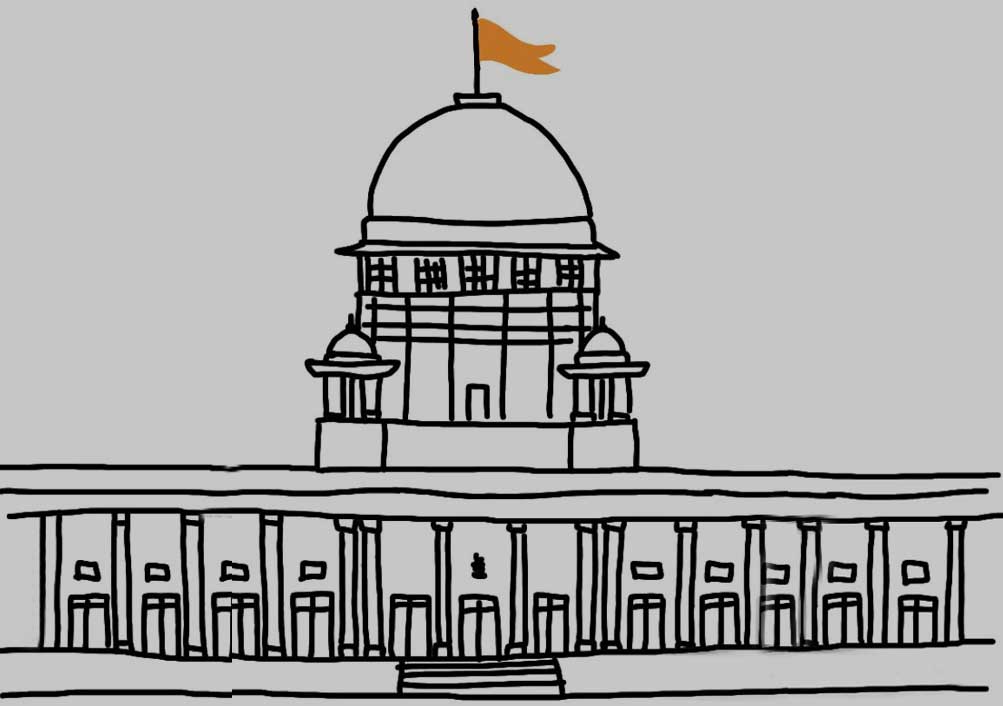In Civil Appeal No(s). 986 of 2011- SC- Supreme Court of upholds validity of Amended Customs Notification, overturns Calcutta High Court's ruling
Justice S. Ravindra Bhat & Justice Dipankar Datta [12-05-2023]

Read Order: Union of India & Ors V. A. B. P. Pvt. Ltd. & Anr
Chahat Varma
New Delhi, May 15, 2023: The Supreme Court of India has overturned the judgment of the division bench of the Calcutta High Court, which had deemed the withdrawal of a customs notification as invalid, holding that the Amended Notification was valid, and consequently, the exemption was not be granted to the imported machinery of A.B.P. Pvt. Ltd. (assessee/respondent). The Top Court has observed that the indigenous angle, i.e., the availability of equipment manufactured within the country, was a germane and relevant consideration in the decision-making process regarding tax exemptions.
Briefly stated facts of the case was that the assessee had imported a high-speed cold-set web offset printing machine along with its parts and accessories and claimed an exemption from duty under a Notification dated May 28, 2003 (First Notification). Subsequently, the Central Government issued an Amended Notification on November 11, 2003 (Amended Notification), which shifted the benefit of the concessional rate from the high-speed cold-set web offset rotary printing machine to a high-speed cold-set web offset rotary double-width four-plate wide printing machine.
The assessee had filed a writ petition before the Calcutta High Court challenging the validity of the Amended Notification. The single judge bench, by its order dated December 5, 2005, had set aside the Amended Notification. The court found that there was no reasonable basis for granting concessions to one type of machinery while withdrawing concessions for other types. It directed that the exemption be granted to the imported machinery of the assessee.
The Union of India, being dissatisfied with the order of the single judge bench, appealed to the division bench of the High Court. The division bench of the High Court upheld the order of the single judge bench and held that the assessee was entitled to claim the benefit of the concessional rate of customs duty paid on the imported goods, rather than the higher tariff imposed by the Amended Notification.
The division bench of Justice S. Ravindra Bhat and Justice Dipankar Datta emphasized on the relevance of the indigenous angle, i.e., the availability of equipment, as a factor in granting exemptions. It held that the grant of exemption to a class of goods similar to those manufactured within the country and its potential adverse impact on domestic manufacturers or producers were germane and relevant considerations.Top of Form
The question of promissory estoppel was also addressed by the division bench, wherein, Justice S. Ravindra Bhat and Justice Dipankar Datta referred to a recent decision in the case of Prashanti Medical Services & Research Foundation v. Union of India [LQ/SC/2019/1127], which provided a correct perspective on the matter. In that case, it was observed that a plea of promissory estoppel is not applicable to an assessee against the exercise of legislative power. Additionally, the observation stated that no vested right was acquired by an assessee in relation to the grant of any tax concession.
The bench said that, “Once it is recognized that it is the executives exclusive domain, in fiscal and economic matters to determine the nature of classification, the extent of levy to be imposed, and the factors relevant for either granting, refusing or amending exemptions, the role of the court is confined to decide if its decision is backed by reasons, germane, and not irrelevant to the matter. Judicial scrutiny can also extend to consideration of legality, and bona fides of the decision. The wisdom or unwisdom, and the soundness of reasons, or their sufficiency, cannot be proper subject matters of judicial review.”
The bench therefore opined that the High Court, by the impugned judgment, erred in judging the merits of the reasons which led the executive government to issue the Amended Notification. Consequently, it was held that no mala fides or oblique considerations were pleaded or urged and the exercise of power was in line with the provisions of the Customs Act.
Sign up for our weekly newsletter to stay up to date on our product, events featured blog, special offer and all of the exciting things that take place here at Legitquest.




Add a Comment